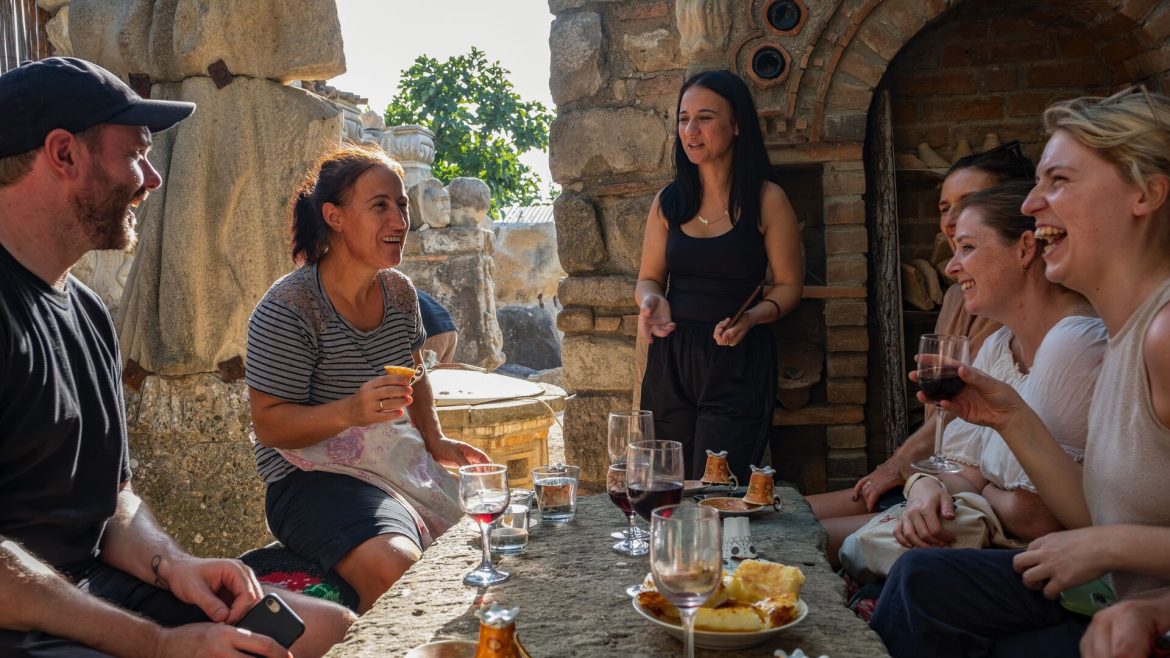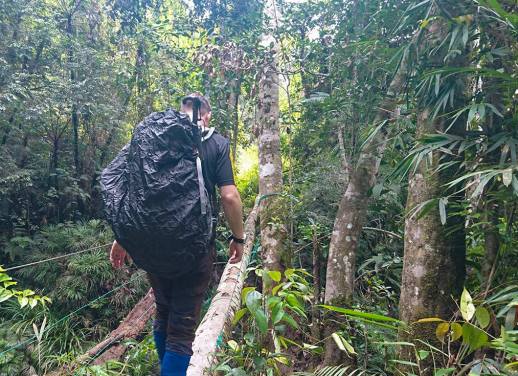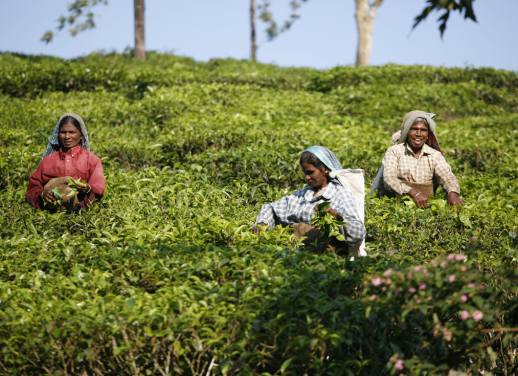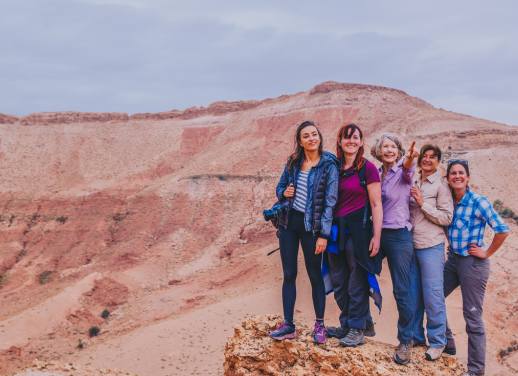On Intrepid’s Albania Expedition, travel writer and photographer Diana discovers the quickest way to get to know a place is through its people.
“The most important monument here is the people” says Elton.
Elton Caushi, our leader on the Albania Expedition, is taking us on a walking tour of old Tirana. We start in the ultra-modern downtown part of the capital city yet, in just a couple of blocks, find ourselves in the higgledy-piggly backstreets among the pre-communist homesteads and decaying communist-era tower blocks.
He’s pointing out the various landmarks and monuments to the past; he shows us colourful murals adorning the sides of several tower blocks and explains how the then-city mayor (and now Prime Minister) Edi Rama commissioned these. Not usual for a politician, he studied art at university and worked as a painter, writer and even basketball player before embarking on a political career. Then again, Albania is not full of ‘usual’ people.
In the heart of old Tirana now, Elton draws our attention to a stone sign on a whitewashed wall. He translates the commemorative text that says this building was once the site of a printing press that made propaganda posters and pamphlets during the communist era.
As he’s mid-sentence explaining the secrecy around communication necessary during that time, a man, perhaps in his mid-50s walks towards us, addressing Elton. It turns out that he lives in this house and, naturally, he invites us into the courtyard for coffee and to introduce us to his mother.
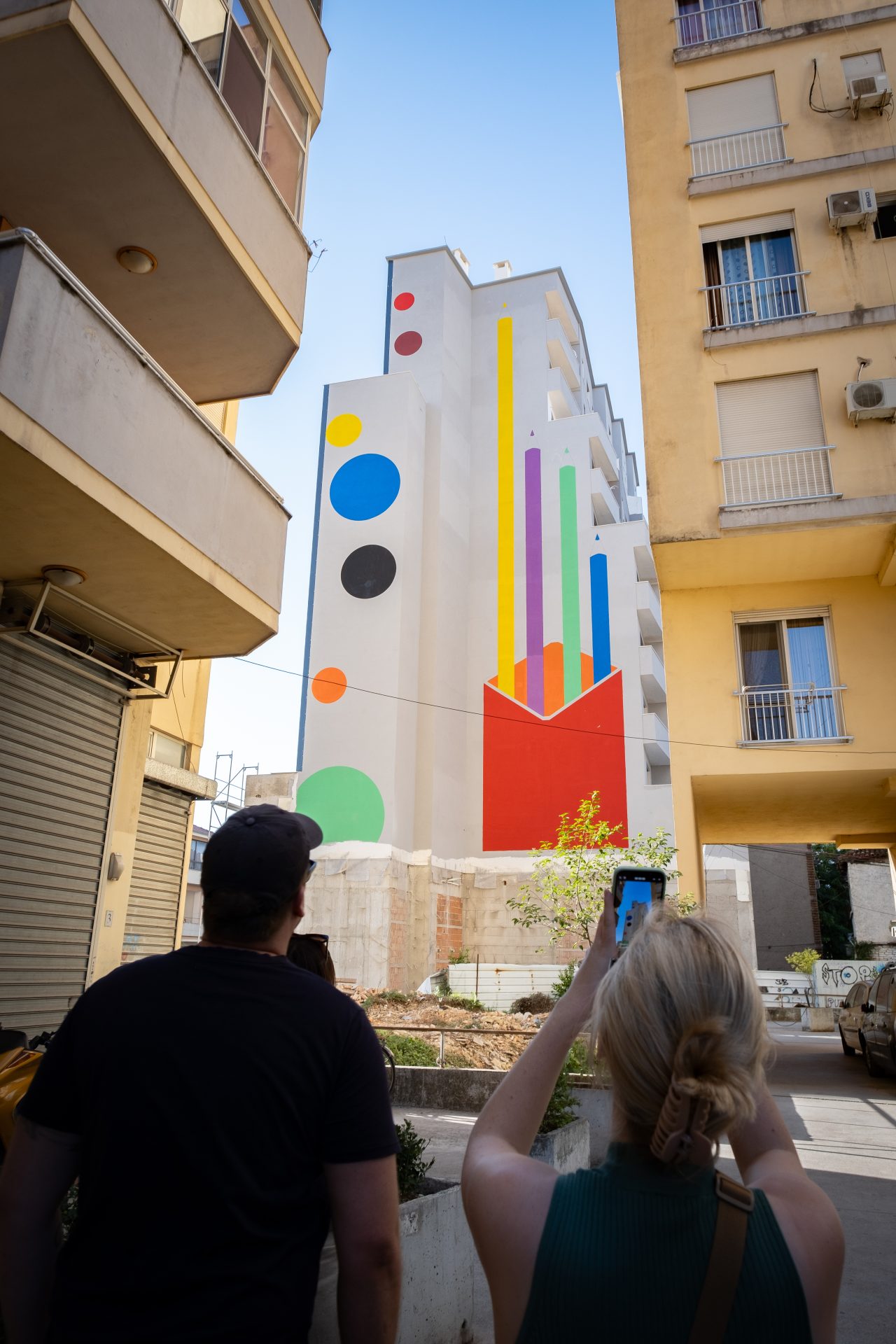
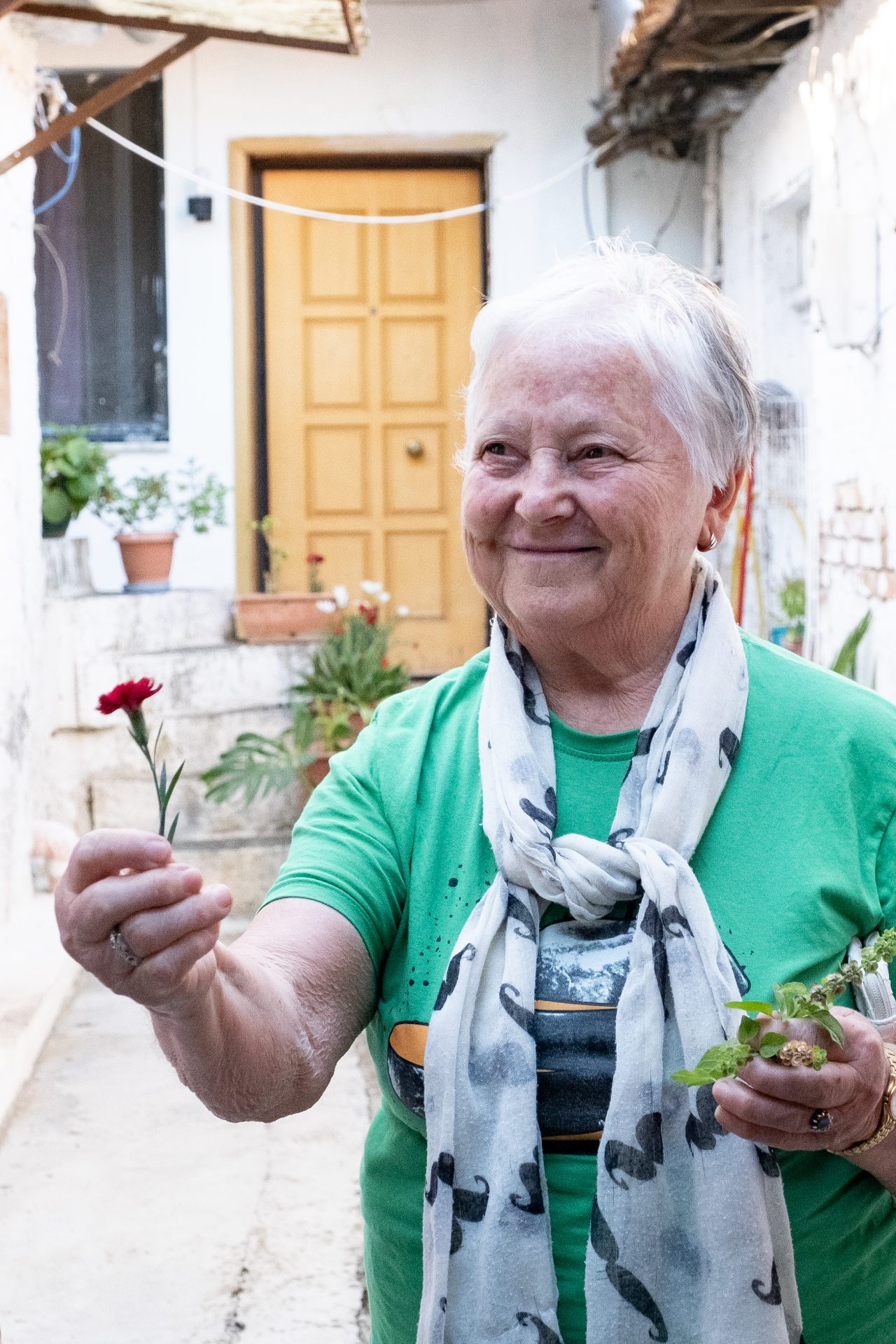
Edmond Karapici was too young to remember the poster making business but his mother, Hirka, does. She also recounts how she used to work at one of the most renowned cocktail bars in town. She could simultaneously carry a tray full of drinks while dancing.
We’ve only been in the country for a few hours and already we’re touched by the openness and generosity of the Albanian people.
Our next encounter with Albanian warmth is after a long, sweaty cycle around Karavasta Lagoon to the village of Babunje. Adriatik and Eva Rrasa welcome us into their home with a delicious glass of their neighbour’s homemade red wine and we sit under the dappled light of the overhead trellis of vine leaves, taking in the intricacies of our surroundings.
It’s more like being in an ancient Greek temple than a backyard. Adriatik is a stone mason and metalworker and he has grand designs for his small patch of land. He wastes no time in sharing his skills and enthusiasm with us and we get to try our hand at hammering hot metal straight from the furnace and shaping wet clay into small pots.
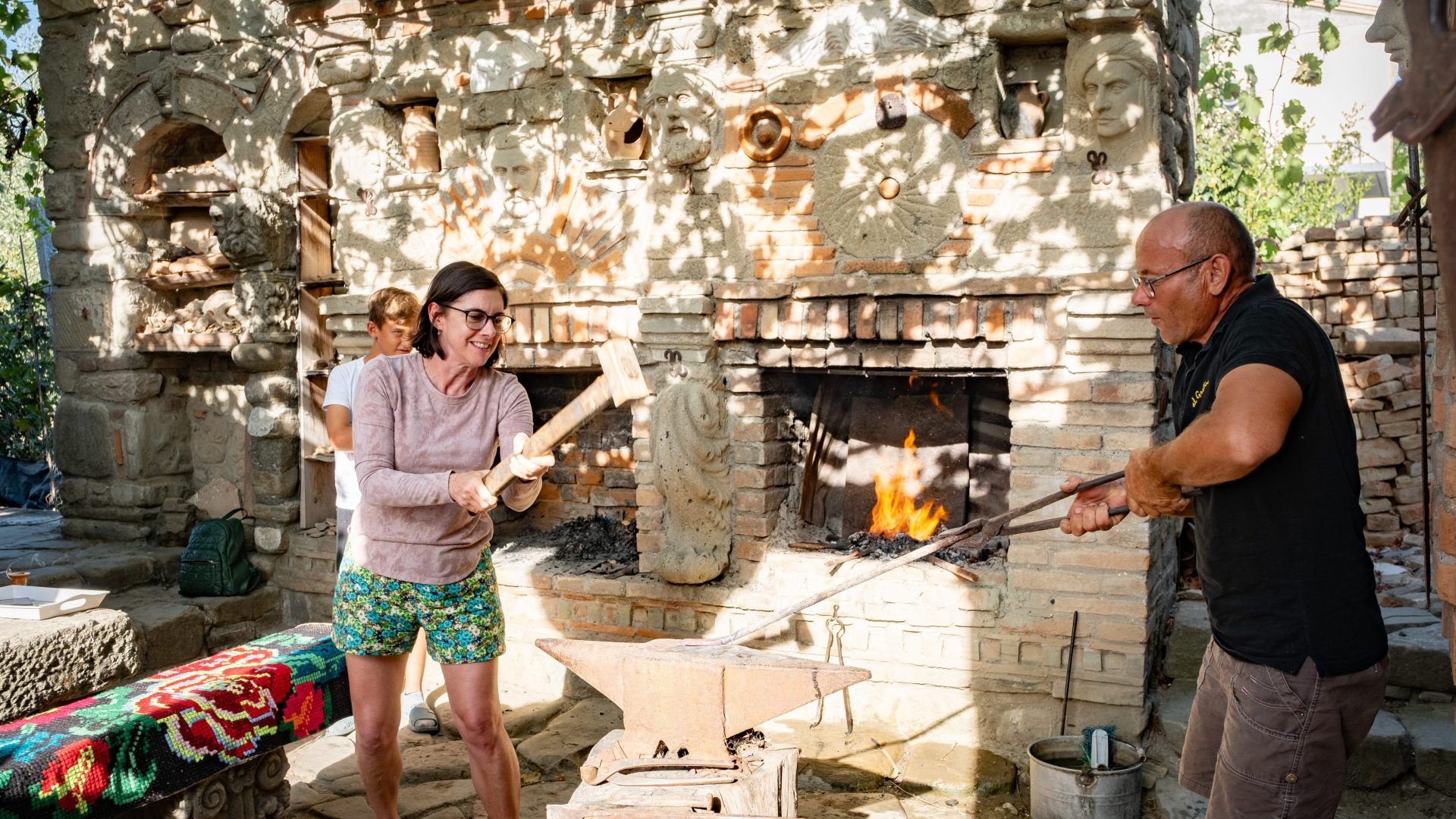
Eva also possesses some secret skills: she’s an expert in the ancient art of coffee reading. She pours the thick Turkish-style coffee into delicate porcelain cups and tells us to drink it normally but to leave a few dregs at the end. She then swills some water around each cup and leaves it upturned on the saucer for a few minutes before launching into our fortunes, translated by her daughter, Arnisa.
Apparently I’m going to come into some money and I’m ‘very sensible’ with it. She’s not wrong, I’d just sold my flat and the money is in a savings account.
A fellow traveller is told she’s in a loving relationship but she’ll have a big decision to make soon, another learns that his path will be beset with adventures (indeed, he’s planning to move to Australia) and our leader Elton gathers he’ll get some official news (we all suggest it’s probably an official prize for his superlative guiding skills).
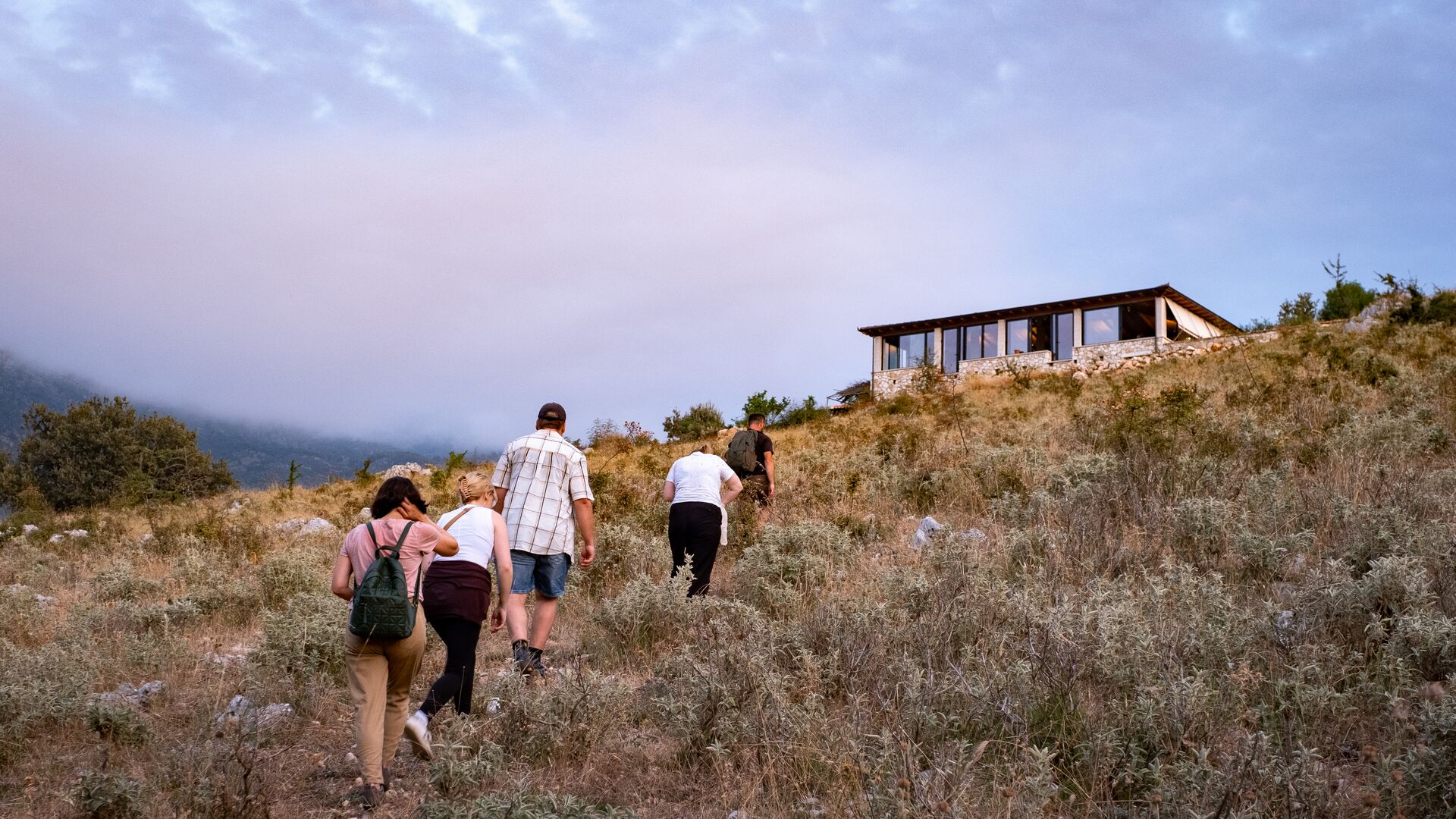
Before we depart, we share a little glass of local raki with our newfound friends.
Raki is a neat spirit often made from fruits like grapes, mulberry, raspberries. It’s a universal drink in Albania, and you’ll find one thrust into your palm wherever you go. Later in the trip, we embark on a short hike among the Tragjas mountains behind the seaside town of Vlorë. As the low sun turns the tops of the mountains an alluring orange, we make our way into the wilder countryside of Albania. We reach the homestead of Sofo and Dhurata as dusk is falling and we’re welcomed with their very own honey-infused raki.
We sip it in near-silence from a rocky overlook as we watch Sofo shut up his turkeys and goats for the night. We also get to meet his dogs who appear from nowhere: their barks shatter the silence and the sight of those barred teeth put a chill down my spine. But as soon as Sofo placates them and presumably reassures them we’re friends not foe, they leave us be and I calm my nerves with the comforting raki.
Back inside, Dhurata offers us petulla, a sweet doughnut-like snack. She tells us it’s traditionally made for celebrations and today she’s celebrating the birth of a new niece.
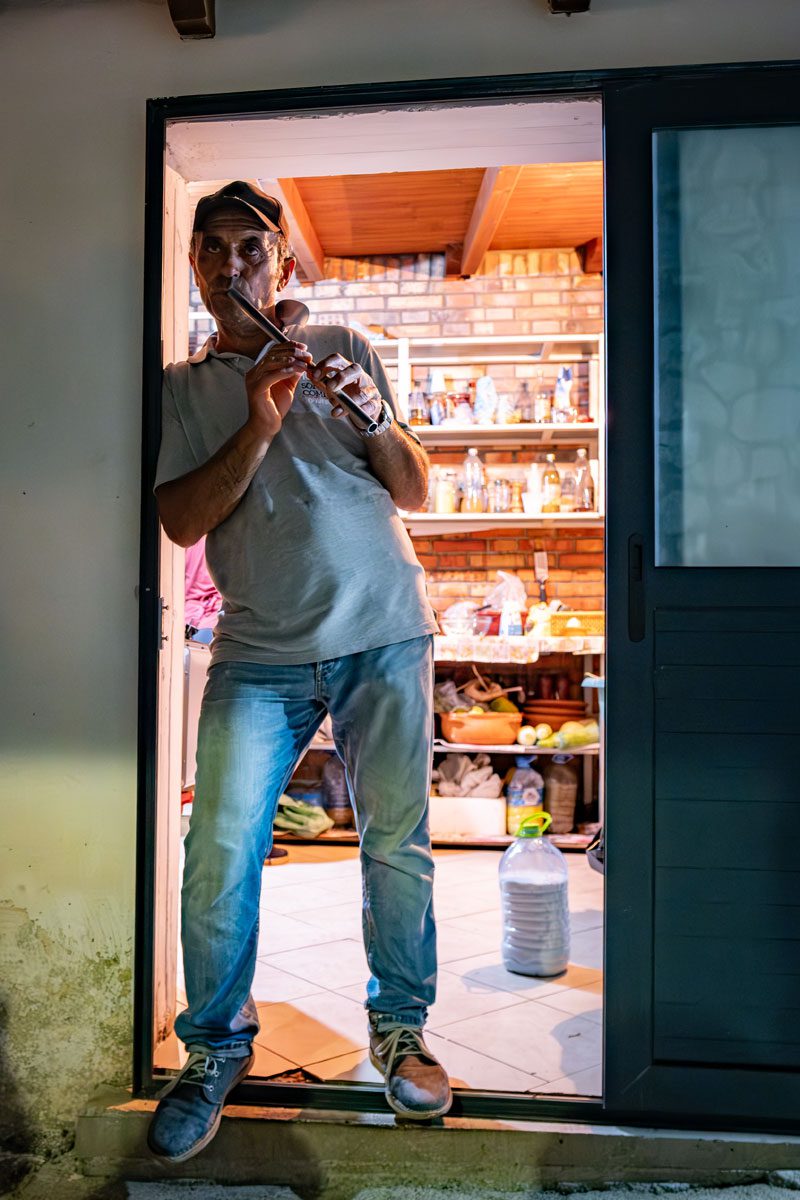
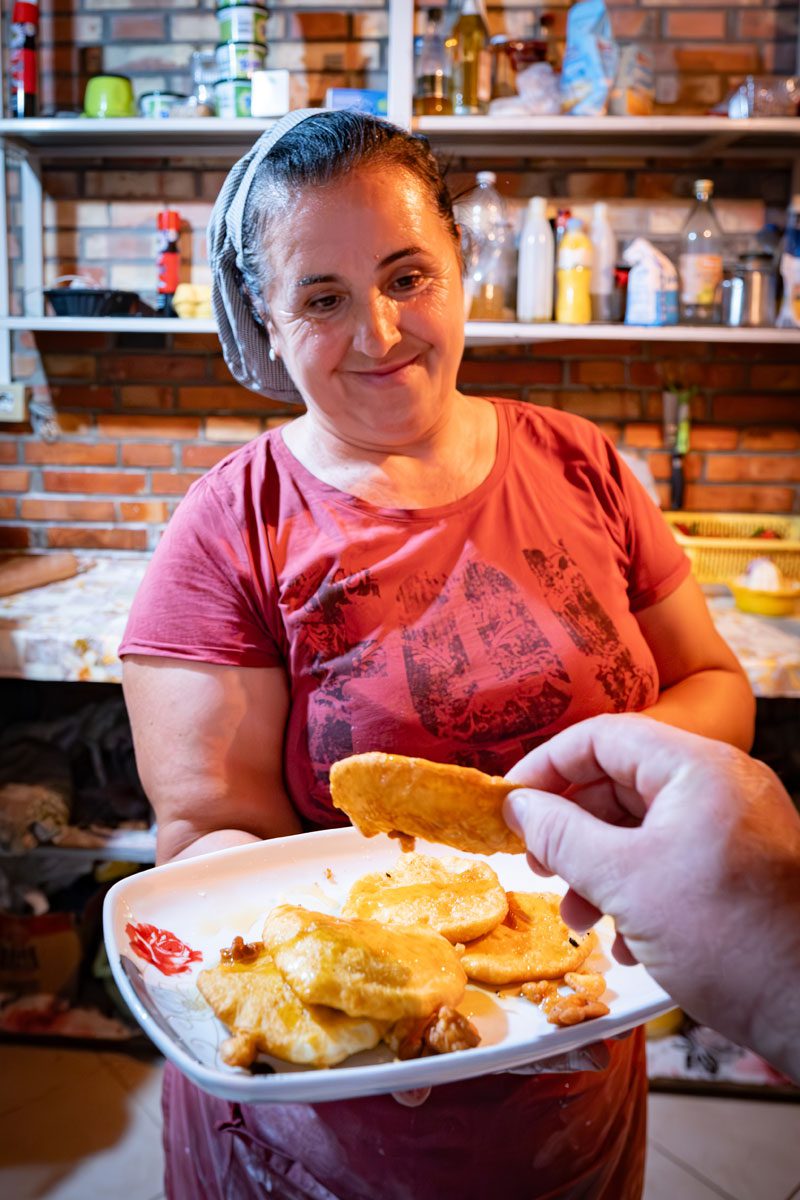
As the darkness descends and the warm autumn evening air is full of sweet herbaceous aromas like the mountain sage we sample as tea, Sofo serenades us on his flute. He tells us this is how shepherds used to communicate on the mountainsides and across the valleys. Now they all use iPhones and are glued to Instagram, but he recalls simpler times with his melodies passed down through generations of shepherds.
I will confess, before I set off on this trip, I watched all the documentaries I could find about Albania. Apart from one about the sworn virgins (a fascinating and must-watch insight to a dying tradition), the rest only chronicled the underbelly of Albania and the connection to criminal gangs in the UK. Yet, what I found by actually visiting Albania was a safe and welcoming country with people only too willing to share their history, culture and life’s philosophies – not to mention raki and coffee – with me.
All images by Diana Jarvis.
Diana travelled as a guest on Intrepid’s nine-day Albania Expedition.

